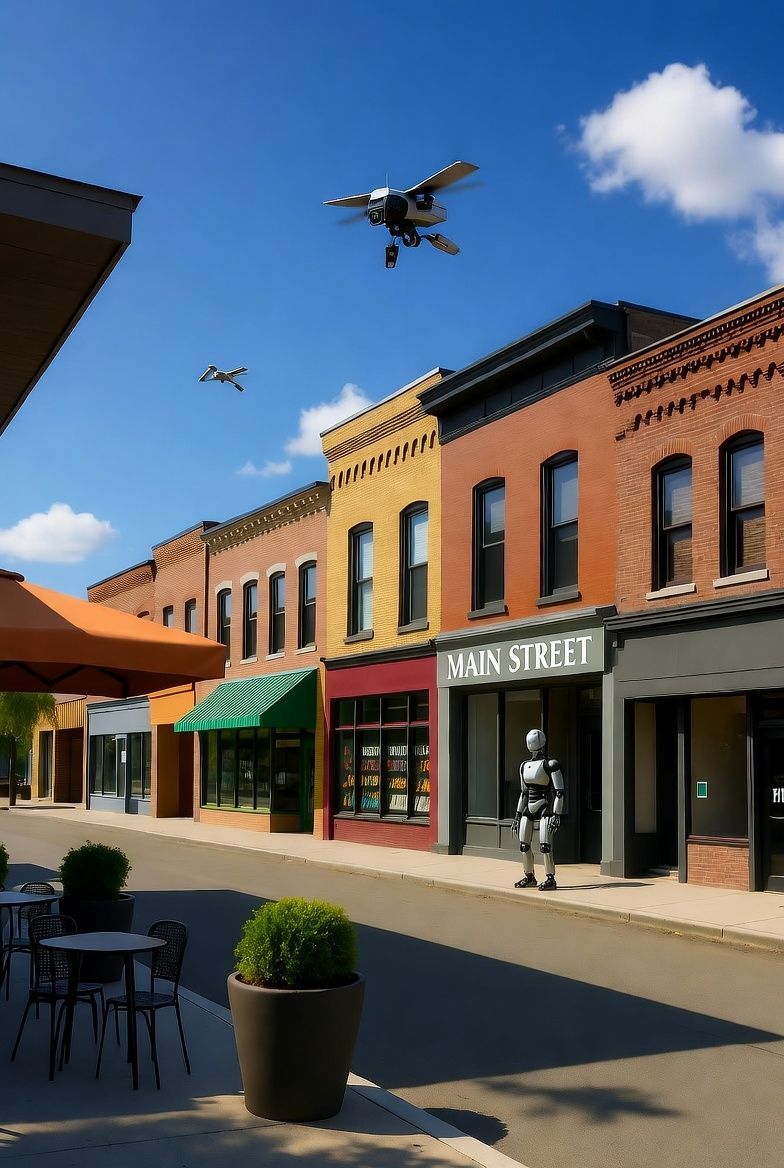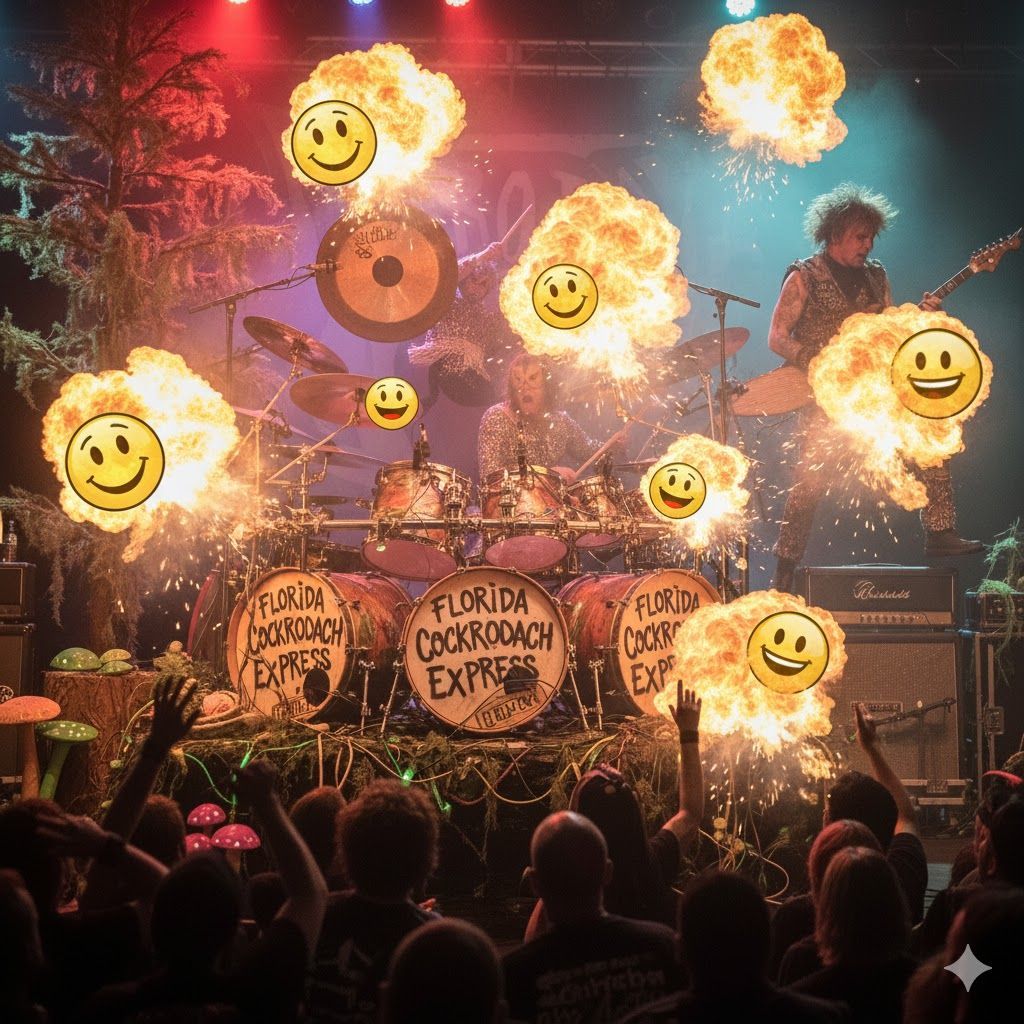Podcasting, AI, and the Small Business Revolution

Podcasting, AI, and the Small Business Revolution
How voice, visibility, and intelligent storytelling are reshaping Main Street in 2025
TL;DR
Podcasting is no longer a hobby or marketing gimmick—it’s a visibility engine. For small businesses, it builds trust, fuels SEO, and feeds AI discovery. Combine it with a smart content strategy and AI-driven optimization, and your voice becomes an asset that ranks, resonates, and compounds.
Table of Contents
1. Why podcasting matters more than ever in 2025
2. How AI has changed the entire content ecosystem
3. What small businesses are missing about discoverability
4. How podcasts supercharge SEO, EEAT, and AI visibility
5. How to actually start (without overthinking it)
6. The future: voice search, conversational AI, and reputation graphs
7. 20 FAQs about podcasting, AI, and SEO
---
### Why has podcasting become so critical for small businesses?
Because people are done with noise. Everyone’s flooded with AI-generated text, endless social posts, and cheap content loops. What cuts through now is *voice*—authenticity in sound, tone, and rhythm. That’s where podcasting wins.
When someone listens to your podcast for 10 minutes, that’s deeper engagement than a thousand scrolled words. It’s not just reach—it’s resonance. The listener feels like they *know* you. For small business owners, that connection turns into something bigger: trust, brand memory, and local loyalty.
In 2025, your voice is a brand asset. When people ask ChatGPT, Gemini, or Perplexity about your city’s top accountant, dentist, or designer, those AI engines look for signals of authority—podcasts, transcripts, expert mentions, and conversation footprints. A podcast isn’t just a marketing channel; it’s a structured, searchable signal of expertise.
---
### What has AI done to podcasting?
AI hasn’t killed human storytelling—it’s made it more scalable.
Today, small businesses can use AI to:
* **Transcribe episodes automatically**, making every word indexable by Google and AI models.
* **Generate show notes, summaries, and blog posts** directly from each episode.
* **Split clips and snippets** for TikTok, YouTube Shorts, and LinkedIn.
* **Analyze audience data** to see what topics resonate most.
AI tools like Descript, Riverside, ElevenLabs, and Veo3 (for cinematic snippets) have made editing and repurposing accessible even to one-person operations. You can record an episode in your office, have AI clean the audio, generate a blog and SEO-optimized FAQ, and post to all major platforms—without a studio or a team.
AI turns a single 20-minute conversation into an omnichannel content stream.
---
### But what does this have to do with SEO?
Everything.
Search engines—and now AI discovery engines—reward *proof of expertise.* When Google’s E-E-A-T (Experience, Expertise, Authoritativeness, Trustworthiness) framework expanded to include *Experience* as a ranking factor, it quietly shifted the game toward *voice-based storytelling.*
Podcasts naturally prove experience. When you discuss how your business solves real problems, those transcripts become SEO gold. They contain keywords, intent phrases, local references, and entity data that structured content alone rarely captures.
AI tools can pull topics and subtopics from those transcripts, generating metadata, blog posts, FAQs, and schema. Each podcast becomes a miniature SEO ecosystem.
So the next time someone in Winter Park asks, “Who’s the best pool builder near me?”—and ChatGPT summarizes local options—your name appears if your digital presence (and podcast transcript) consistently connects your voice to your expertise.
---
### What are small businesses missing about discoverability?
Most still think SEO is about backlinks and blogs. That’s outdated thinking. Modern discoverability means being *structured, cited, and semantically understood* by machines.
AI agents like ChatGPT, Perplexity, and Gemini crawl data differently than Google—they look for relationships. They want to know who you are, what you do, and how people talk about you. Podcasts accelerate that process.
Every episode can include your business name, location, service type, and expert commentary—all indexed in natural language. Add structured metadata (like Podcast schema, LocalBusiness schema, and FAQ schema) and you’re not just discoverable—you’re *interpretable*.
It’s no longer about ranking for “plumber near me.” It’s about being *recognized* by AI as the most trustworthy plumber near me.
---
### How do podcasts build trust faster than ads or blogs?
Because a podcast feels like conversation, not promotion. It’s storytelling in the most primal format—voice. Humans have trusted voices long before we trusted text.
When people hear your tone, pacing, laughter, and sincerity, they subconsciously evaluate credibility. That’s something no banner ad or generic blog post can replicate.
AI-powered transcription adds a second layer: data. The combination of *emotional authenticity* and *machine-readable structure* creates the strongest form of modern digital authority.
---
### How do you start without getting lost in tech?
Keep it simple. You don’t need a studio, a mixer, or even a producer.
1. Use a decent USB mic (your Behringer C-1 with UM2 is perfect).
2. Record on Riverside, Zoom, or even your phone.
3. Use Descript or Adobe Podcast AI to clean it up.
4. Export audio + transcript.
5. Drop transcript into NinjaAI (or ChatGPT) to generate show notes, FAQs, and summaries.
6. Publish everywhere—Spotify, Apple, YouTube, your site.
Then build a rhythm: one episode a week around client questions, trends, or community topics.
A med-spa in Lake Nona might talk about “how to prep for laser treatment,” while a Lakeland HVAC company could discuss “how AI diagnostics reduce energy bills.” Each episode solves real problems while embedding local and industry keywords naturally.
---
### What’s the link between podcasts, local SEO, and AI discoverability?
Local SEO and AI visibility are converging fast.
Google’s *AI Overviews*, ChatGPT’s *local citations*, and Perplexity’s *trusted sources* all prioritize entities with consistent signals:
* Your voice (podcast)
* Your experience (content and schema)
* Your reputation (reviews, mentions, citations)
So when you host a podcast about your niche and location, and it’s transcribed, timestamped, and embedded on your site, you’re training AI to *see you* as the expert in that local graph. That’s the new “SEO.”
In a sense, you’re building your own digital Main Street storefront—but instead of foot traffic, you’re attracting algorithmic attention.
---
### How does AI make podcasting more human instead of less?
Because it removes the technical friction and gives creators room to focus on what matters: ideas, emotion, and storytelling.
You can record unscripted, then use AI to polish, summarize, and optimize. Instead of hiding behind perfect phrasing, you can be real—and still end up with clean, professional-grade output.
AI has become the invisible engineer, letting small business owners focus on what they know best: their craft, their city, and their story.
---
### What’s next for voice and discovery?
The rise of **voice search and conversational AI** means that soon, people won’t “Google” things—they’ll ask their AI: “Who’s that guy from NinjaAI who talks about AI visibility?”
Those queries are answered by systems trained on *voice*, *transcripts*, and *semantic consistency.* So the small business that records a weekly five-minute podcast today will be the one that AI recognizes as the “go-to local expert” tomorrow.
We’re entering the *era of conversational SEO*—and podcasts are the bridge.
---
### 20 FAQs About Podcasting, AI, and SEO
**1. Does podcasting still work in 2025?**
Absolutely. The format has matured, but attention has shifted toward short, high-trust conversations. The key is pairing audio with structured data and AI optimization.
**2. How long should each episode be?**
Between 5 and 20 minutes. Long enough to build authority, short enough for listeners to finish.
**3. What should a small business podcast talk about?**
Answer the questions your customers already ask. That’s both content and keyword research.
**4. Does AI write or edit the podcast for you?**
It can, but it shouldn’t replace your voice. Use AI for cleanup, not authenticity.
**5. Can podcasts really improve SEO rankings?**
Yes—through transcripts, internal linking, structured schema, and topical authority.
**6. Do you need video, or is audio enough?**
Video helps visibility, but audio alone still builds brand authority.
**7. What AI tools should you use?**
Descript, ElevenLabs, Riverside, Veo3, and NinjaAI for visibility mapping.
**8. How often should I publish?**
Consistency beats frequency. Once a week or bi-weekly is ideal.
**9. Should I include guests?**
Yes—especially local experts, customers, or community leaders. Collaboration compounds reach.
**10. How can I repurpose podcast content?**
Turn each episode into a blog post, LinkedIn update, and short-form clips.
**11. What’s the best way to promote a new show?**
Use snippets across social, link to it in your email signature, and embed on your homepage.
**12. Is there a way to measure podcast ROI?**
Track traffic spikes, keyword lift, local impressions, and branded search growth after episodes drop.
**13. How do you optimize podcast metadata?**
Use your business name, location, and service type in every title, description, and transcript.
**14. Does AI voice cloning matter?**
Not for most businesses. Your real voice is your brand. Use cloning only for automation or multilingual reach.
**15. What microphone setup is enough?**
A USB condenser mic (like the Behringer C-1 or Blue Yeti) is perfect. No studio needed.
**16. Can podcasting replace blogging?**
No—but it enhances it. Podcast transcripts are long-form content in disguise.
**17. How do you build EEAT through podcasts?**
Show experience (stories), expertise (details), authority (guests), and trust (authentic tone).
**18. What are AI discovery engines looking for?**
Structured data, mentions, consistency, and content that feels *alive.*
**19. How can small towns benefit from podcasting?**
Local voices build community trust—and AI now indexes regional data faster than ever.
**20. What’s the future of small business marketing?**
Blending human voice, AI structure, and local storytelling into one continuous signal.
---
Podcasting isn’t just content—it’s digital capital.
In a world of machine summaries and generative search, your voice becomes your proof of existence.
When small businesses treat their podcast not as entertainment but as *structured visibility*, they don’t just survive—they become part of the AI layer that defines what’s real, local, and trustworthy.
That’s the future of Main Street marketing—and it starts with one microphone, one idea, and one story worth telling.















